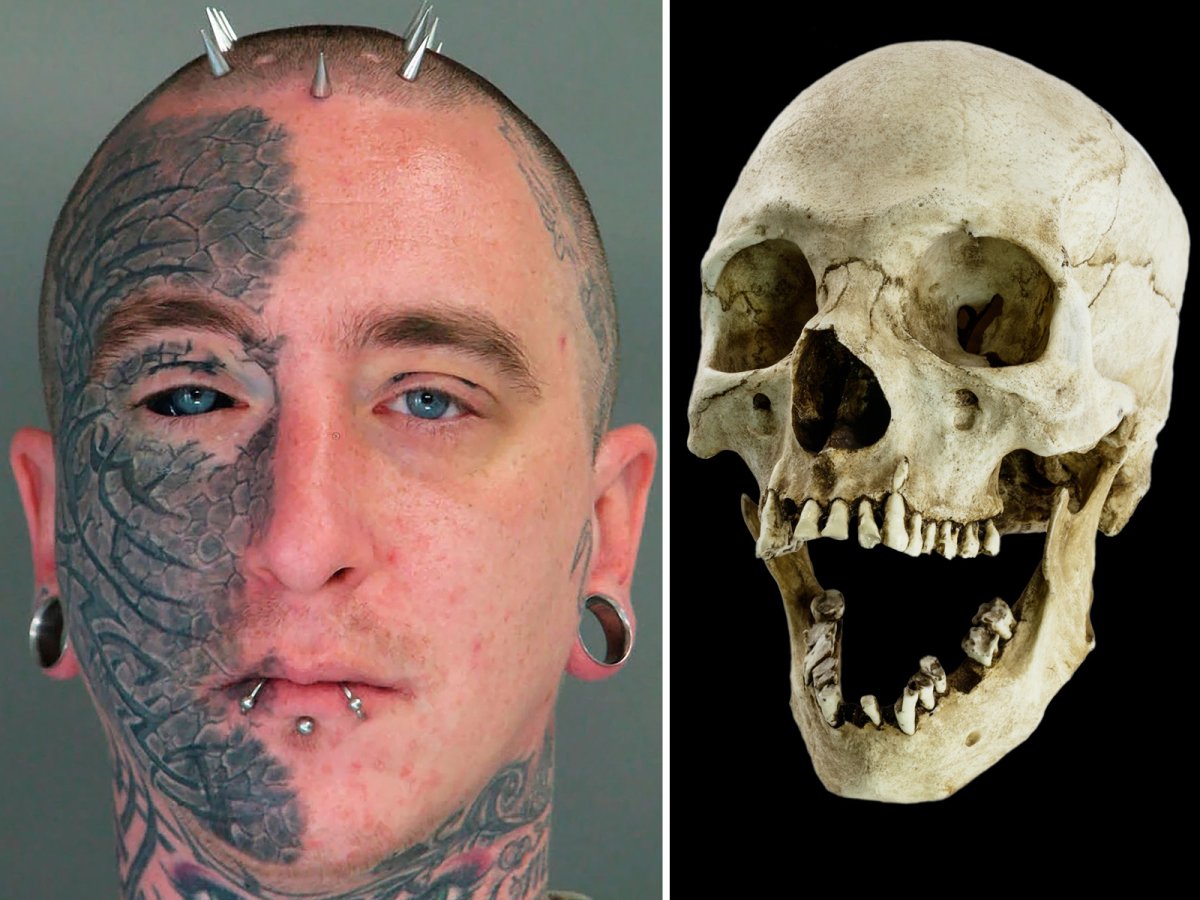The grizzly trade of human bodies in the U.S. was highlighted in August when a man in Pennsylvania was arrested for buying and selling human body parts on Facebook, including human brains, one full female pelvis, one piece of skin with a nipple, four hands and a child's jawbone with teeth still attached.
The practice of collecting body parts is nothing new, with civilizations dating back thousands of years taking remains as souvenirs or trophies. But in modern society, what would make a person want to own someone else's body parts?
According to Aaron Surtees, psychologist and founder of City Hypnosis, there are two areas of psychology at play with body part collection: the act of collecting, and the desire to collect this particularly grim set of items.

"[Collecting things] is essentially a survival technique, but when one becomes obsessed with collecting it is the mind's way of taking charge and managing the world around it due to lack of parental love and affection/attention as a child," he told Newsweek.
"These subconscious feelings of abandonment makes them neurotic in needing to control everything around them in their adult life. It is their way of coping with these unresolved issues and a way of trying to control their anxiety and feelings."
Someone actively seeking to collect and store body parts in particular is likely to have some deeper psychological issues at play, however, according to Surtees.
"In adult life, [someone who collects body parts] won't have many interactions with other living humans and keep themselves shut off from society. This is their mind's way of having that engagement and how they justify collecting body parts to themselves. It is the ultimate way of exerting power over their lives, relationships and world," Surtees said.
"Why someone decides to sell body parts is down to the individual—selling body parts on the black market is big business and completely unethical but mainly done for financial gain. Whether or not this keeps the buyer's urge for killing at bay is out for debate, but it could be a less harmful outlet for murder due to the collector being a perpetrator and not knowing that this is immoral and unhealthy".
In this most recent case in Pennsylvania, "several 5-gallon buckets" of human remains were found in a basement in Enola. The basement's owner, 40-year-old Jeremy Pauley, was alleged to have purchased the body parts via Facebook.
According to WHTM, other discoveries in the buckets included half a head, three brains, one heart, one liver, one lung, two kidneys, and a trachea. In total, Pauley had allegedly spent over $4,000 on his collection.
The collecting of human body parts has been found to occur throughout history, often to prove one's dominance over another. Even in the Bible's Old Testament, King Saul asked for one hundred Philistine foreskins to be brought to him by David as bride price for his daughter. Body parts of African American lynching victims were collected by the murderers as trophies, and in the internet era, the trade of body parts on Instagram is booming.
There is a thriving community of body part collectors online, mostly involving skulls and other bones, but occasionally more macabre items, such as preserved fetuses.
"People outside of the community often see what we do as maybe a little disturbing," Debbie Reynders, a Belgian collector and trader who runs an Instagram account of almost 4,000 followers, told Wired. "But the people who collect and trade are really genuine people, open and lovely. But a bit guarded. Especially to journalists."
Pauly was alleged to have sourced the body parts from a woman who was allegedly stealing body parts from a University of Arkansas mortuary and selling them online.
It's not strictly illegal to buy or sell human body parts in the U.S. The charges Pauley faces are therefore not for the trading of human remains, but the felony of receiving stolen property, and misdemeanor abuse of a corpse.
"No federal law prevents owning, buying, or selling human remains, unless the remains are Native American," mortician-come-Youtuber Caitlin Doughty said in her book Will My Cat Eat My Eyeballs?: Big Questions From Tiny Mortals About Death. "Otherwise, whether you're able to sell or own human remains is decided by each individual state. At least 38 states have laws that should prevent the sale of human remains, but in reality the laws are vague, confusing, and enforced at random."
Uncommon Knowledge
Newsweek is committed to challenging conventional wisdom and finding connections in the search for common ground.
Newsweek is committed to challenging conventional wisdom and finding connections in the search for common ground.
About the writer
Jess Thomson is a Newsweek Science Reporter based in London UK. Her focus is reporting on science, technology and healthcare. ... Read more





